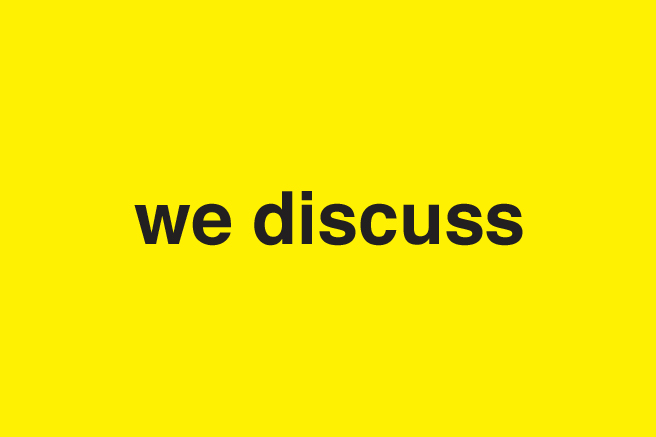
We Discuss #2 is coming up! Last week, we posted this month’s theme and topics. Below is a short list of materials that will hopefully be useful in the discussion.
1. Crossing Borders with Dave Lumenta
“With a country as an identity, people tend to categorize what you can do and what you are like. Sometimes it is a stigma. A nation’s identity can facilitate many things as racism and segregation.”
If the saying goes “Don’t miss the forest for the trees,” perhaps there is also something that needs to be said for the opposite. Focusing on the bigger picture – the forest, or in this case, the country – will make us forget about the individual dots and lines – the people. And yet the so-called passport country is still a big part of a person’s identity, making it difficult to get rid of stereotypes and discrimination.
2. 2005 Kenyon Commencement Address (May 21, 2005) by David Foster Wallace
“There are these two young fish swimming along and they happen to meet an older fish swimming the other way, who nods at them and says ‘Morning, boys. How’s the water?’ And the two young fish swim on for a bit, and then eventually one of them looks over at the other and goes ‘What the hell is water?’”
To summarize his little story, Foster Wallace then said, “The point of the fish story is merely that the most obvious, important realities are often the ones that are hardest to see and talk about.” Are we, like the young fish, unaware of the environment – whether cultural, political or otherwise – that shapes us?
The transcript of the original speech is available here.
3. Let the Great World Spin by Colum McCann
“It struck me that distant cities are designed precisely so you can know where you came from.”
Do we need to leave “home” to understand it better? How does migration, or even travelling, affect our sense of self with regards to our country of origin?
4. Justice: What’s the Right Thing to Do by Michael J. Sandel
“With belonging comes responsibility. You can’t really take pride in your country and its past if you’re unwilling to acknowledge any responsibility for carrying its story into the present, and discharging the moral burdens that may come with it.”
How relevant is national loyalty in a highly interconnected world such as the one we live in today?
(For those who are interested on the topic of justice, check out Michael J. Sandel’s series of lectures here.)
5. Citizenship: A Very Short Introduction by Richard Bellamy
“Just as citizenship seems to be becoming the universal panacea for every problem, it seems that the really distinctive aspect of citizenship – that’s participation in voting and elections, and in collectively solving problems through forming a government – seems to be in decline. Everywhere that you have elections, you’re now seeing fewer and fewer people involved.”
He speaks about lower levels of political participation, and how citizenship is transforming into something that is more private than public. Are nations a thing of the past? Are we now turning to clustered communities that pursue their own interests? Can this model actually bring about positive changes?
Richard Bellamy briefly explains the contents of his book in this video.
Event time and location:
Date
Tuesday, August 27, 2013
Time
7–9 pm
Place
Kinokuniya Plaza Senayan
(near the language section)
Jl. Asia Afrika 8
Sogo
Plaza Senayan Lt. 5
Jakarta 10270
Please stay tuned to our Facebook page and Twitter account for more details! For those of you who would like to join our event, there is still time to sign up via e-mail with the subject title “We Discuss” at contact@whiteboardjournal.com! If you have questions, don’t hesitate to tweet us @wjournal.











